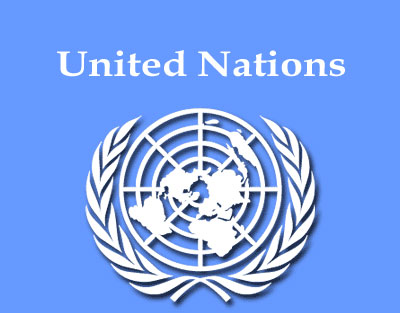The United Nations on Tuesday launched a nine million-dollar food security project in Kaduna State to improve the livelihood of farmers in the state.
Briefing newsmen in Abuja on Tuesday, Mr Edward Kallon, the UN Resident and Humanitarian Coordinator, said that the project known as “Food Africa’’ was to ensure improved nutrition and food sufficiency in the country.
Kallon said the project was an innovative approach aimed at revamping the food sector to create new jobs for young people, increase farmers’ revenue, improve productivity, enhance nutrition and reduce food loss through the adoption of more sustainable production practices.
He said that the project would be implemented in partnership with various UN agencies, including the UN Sustainable Development Goals Fund (UN SDG-F) and the Food and Agriculture Organisation (FAO).
He said that the other facilitators of the project included the Sahara Group, the International Labour Organisation (ILO), the Roca Brothers and the Kaduna State government, among others.
According to him, Nigeria is currently facing food insufficiency due to factors such as reliance on rain-fed agriculture, increase in food prices and climate change.
Kallon said that the private sector was the engine room for actualising the SDGs, adding that collaborations between the government, private sector and UN agencies would facilitate efforts to achieve the targets of the project.
“A growing population comes with a growing demand for food. To feed this expanded population nutritiously and sustainably, much more efforts and innovation are needed to make substantial improvements to the food system,’’ he said.
Also speaking, Ms Paloma Duran, the Director of UN-SDGF, said that the project would target, train and involve no fewer than 4,000 farmers in Kaduna State.
Duran noted that the project commenced with the training of 50 farmers, including young women and men in agriculture, using a train-the-trainer approach.
“Some of the priorities of this project are food security and nutrition as well as inclusive economic growth; and it will last for three years,’’ she said.
Mr Suffyan Koroma, the FAO Country Representative, said that the project would target food preservation techniques, especially in the tomato value chain.
He said that the project would help to promote sustainability and replicable integrated solutions to agro-food value chain development, youth employment and poverty alleviation issues.
Dr Abdukadir Kassim, the Permanent Secretary, Kaduna State Ministry of Agriculture and Forestry, commended the UN agencies for choosing the Kaduna as the pilot state for the project.
He said that the training of the 50 farmers was apt, adding that the state government was interested in improving the livelihood of its citizens to ensure increased food production.
He said that the state government’s agricultural schemes had impacted significantly on about 70 per cent of its farming population because of the fact that there was no better security than food security.
Kassim said that the state government would support agencies and partners whose target was to promote the agricultural potential of the state.
“The training of the farmers in Kaduna has confirmed the fact that the UN is supporting agricultural programmes in the country.
“Any programme aimed at improving the livelihood of the people will be welcomed by the government,’’ he added.
Mr Tonye Cole, the Executive Director of the Sahara Group, said that the project would be replicated in other states of the country and across Africa to achieve food security.
News Agency of Nigeria (NAN) reports that the Food Africa project focuses on identifying and testing a replicable model in Kaduna State, with a view to scaling up the programme in other countries in Sub-Saharan Africa.

